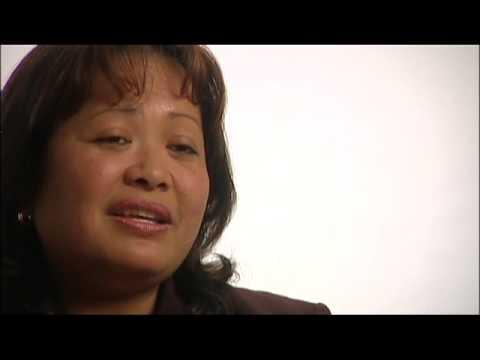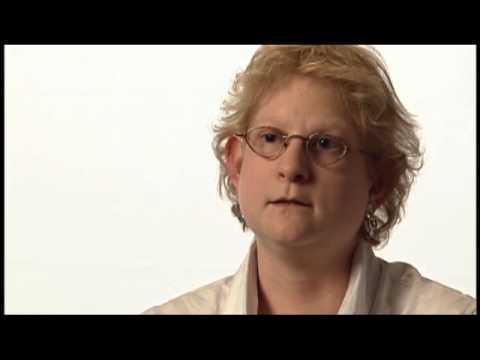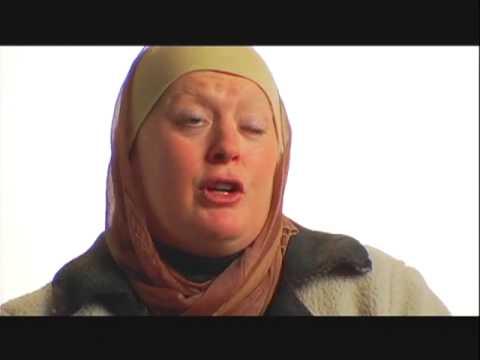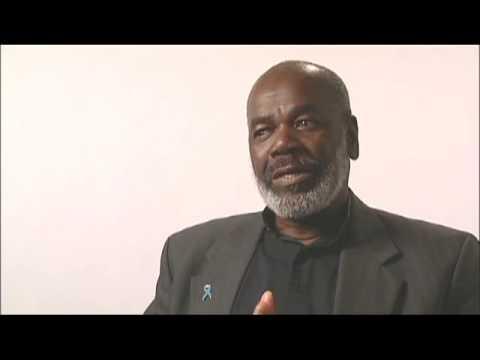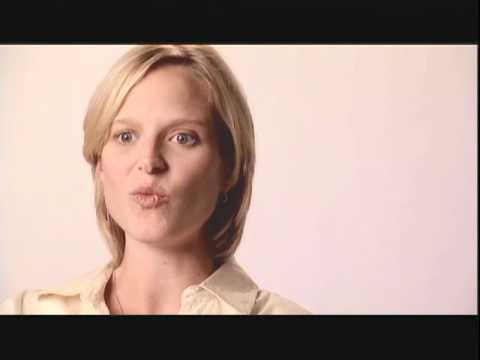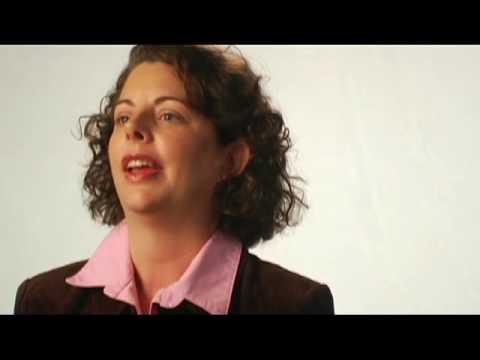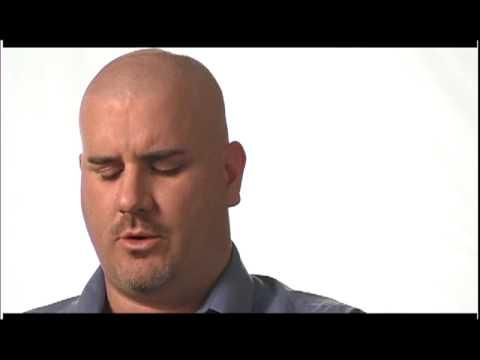I became a breast cancer survivor when I was diagnosed in October of 2000.
I was 31. I had a daughter who had just turned two. As soon as I got the diagnosis, the only thing I could think of was death. When people think of cancer, they don’t usually think of life. It was really scary to me.
I had a mastectomy on the right side where the cancer was, and then I did two separate rounds of chemotherapy for six months. A month after I finished my treatment, I had a prophylactic mastectomy. I was so sick from the treatment that I didn’t ever want to have to worry about that other breast. I begged to have it removed. My doctor had to write to the insurance company and tell them that it would be good for me, because of the two kinds of cancer that I had in my one breast.
I didn’t really have anybody talk me out of anything. My doctors were very open. My second round of chemo wasn’t even indicated for my type of cancer, but I begged my doctor to let me have that other round of chemo for micrometastases, which they usually use in Stage 2 and 3. I wanted to have that. It’s that American thought, “Give me more of everything.” It was the same thing with my breast surgeon. I could’ve had a lumpectomy, and I opted for a mastectomy. There was a spot that I didn’t really want to have to watch. I just wanted the whole thing gone so I wouldn’t have to always have that bad feeling that something was growing in my breast.
I was in chemo-induced menopause for a little less than a year. When I started to menstruate again, I was thinking, “I’m not fertile anymore,” because I’ve already been in menopause. We never used any protection at all because of assuming that I was infertile. When we went to Hawaii, I had been expecting my period and it never came. I kept going to the store and buying tampons and pads and thinking, “My period’s coming.” When I got home, I found out that I was five weeks pregnant. It was like this miracle baby because I assumed I would never be able to have children again, even though my period had come back. Without any help from fertility doctors and really not planning a second pregnancy, it was a very scary thought because I hadn’t been in the mindset that I was gonna get pregnant. I wasn’t doing all the things I had done with my first child. I wasn’t taking gobs of vitamins and being super vigilant about my eating habits. I was having a drink with dinner, or having a glass of wine when I went out. I was not prepared to be pregnant.
Be able to communicate with the nurses, especially in the doctors’ office, so that they can get your message back to the doctor. If you have access to a pharmacy that’s not so busy and they can actually talk to you, I think that’s a great resource to seek out because the pharmacists know the drugs. I was a pharmacy technician for fourteen years. I worked at a specialty pharmacy that dealt with AIDS and cancer. So I already knew that I was gonna have access to a pharmacists that were used to dealing with IVs, chemotherapy and all the agents that go along with helping with chemotherapy. Seeking out the professionals that specialize in those fields is very important. It’s a good way to help take care of yourself during those times when you don’t know what else to do.
Nobody at any young age thinks they’re gonna be diagnosed with cancer. It’s a very scary thing. I went through months of treatment. I don’t think I realized how serious the post-traumatic stress disorder (PTSD) was until I got pregnant, and I started feeling nauseated. It brought back everything that I had gone through with chemo. That’s when I really needed the help. I did get help during the treatment, but even having nausea brought back all of the yucky stuff from the chemotherapy. Even when I get the stomach flu now, it brings back all that. It’s horrible. The PTSD. The symptoms and the treatment. The symptoms are all the emotions that you deal with when you’re diagnosed. And my treatment was to talk about it. Apparently, the more you talk about PTSD, the less you feel that anxiety that comes with it. One of the hardest parts for me is going back for any checkup. It brings this immediate anxiety that I can’t seem to get rid of until I get to the appointment and they say, “Everything’s okay.” During the height of my cancer treatment, I sought out counseling with a nurse practitioner who specializes in breast cancer. She hears the same sort of stories from all of the survivors. I used antidepressants and anti-anxiety medications. Mostly the anxiety medications were for all my doctors’ appointments because I could barely walk in. I still have a hard time. Every six months now. I hate them. I like my doctor, I like the office, but just going there is really hard.
My relationship with my husband suffered because both of us closed off. It was easy for me to be able to communicate with other women because when I would go to the support groups, we all knew what we were going through. Almost everybody had been there with the tubes hanging out, with implants and prostheses, and all of those problems. But it’s hard to talk to somebody who hasn’t gone through it. Even though he wanted to support me, however he could, I didn’t communicate with him very well. He felt pushed into the back of my life while I forged ahead and went through everything I needed to go through. It was really a difficult time for our relationship. We spent about a year in couples’ counseling after we had finished everything. We were also doing therapy separately. There were a lot of issues that we had to work on. It’s a really trying time. I think that’s really important to make resources available to help both the survivor and the partner.
I was involved in the community. I went from one recreational activity, which is motorcycle riding, to breast cancer. I combined the two, actually. I stay very active in the Alaskan community. I know most of the survivors that go to the breast cancer support group, so I have a pretty big network of survivor friends or acquaintances. Last summer, I started a Pink Ribbon Ride and raised money for breast cancer. We had one of the biggest turnouts ever for any of my events. Cancer impacts so many people that it was like everybody there was somehow touched by cancer. We put the money back into our community. The money went to an organization in Alaska, and they give out grants to people within the state. It was great.
I think by heart, I’m a researcher. So for me, being able to get on the Internet, go through medical journals, find anything I possibly could to help with my treatment was really important. I try to go to reputable sources. I wanted to go to places that actually had abstracts with scientific background. I used resources that were scientifically-based. That’s important for everybody to empower themselves to make sure that they get every single thing they need out of their treatment. The Internet is a powerful tool, especially if you use the right kind of sites to get that information. Even to find out if I was gonna wear a wig, I went to the American Cancer Society. They had brochures on wigs and hats. It’s not like you just walk into a store and there are wigs and hats for cancer patients. I found every resource that was available to me in the state and anything that I could find on the Internet that was pertinent to my diagnosis.
Survivorship means doing whatever you want in life and not letting anything stop you. That’s how I try to live my life now. I don’t think, “I’m gonna retire in thirty years.” I think, “Oh, I could go on this trip next month. I’m going.” I don’t think, “Oh, I’m gonna miss work and have leave without pay and it’s gonna screw up my retirement.” Because who knows if you’re gonna get to retirement? I don’t let those sorts of things bother me anymore.
Livestrong™ means living my life and not passing up opportunities. Livestrong™ means taking the day off work when it’s nice out to go motorcycle riding.
My name is Jamie Lang, and I’m a four-year breast cancer survivor.
